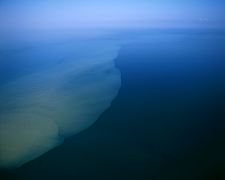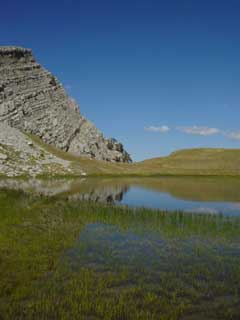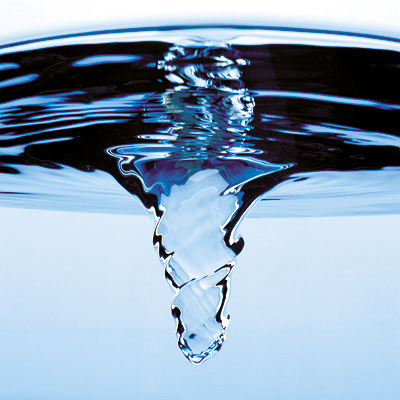 Changes in Arid Mediterranean Ecosystems on the Long term and Earth Observation
Changes in Arid Mediterranean Ecosystems on the Long term and Earth Observation
- The principal objective of CAMELEO is to set-up and demonstrate an
integrated concept for an operational Earth observation system to
operationally monitor desertification processes at regional scale in the
arid parts of the Mediterranean basin (i.e. mainly North Africa), in order
to contribute to the fulfilment of the UN Convention to Combat
Desertification (CCD) and to support sustainable land management to mitigate
desertification.
- The general concept is to integrate all available data on the studied
environments. This will include data collected on the ground as well as data
acquired by Earth Observation programmes. The scientific approach relies
strongly on the experience and results already gained by the other projects
of EMAP-MECOM and its partners as well as by international initiatives such
as the ROSELT-OSS network.
- This includes the identification of ground indicators of local ecological
changes (degraded condition, stable, restored..), the determination of those
that can be remotely sensed, the selection of the most adequate high
resolution satellite data, refinement and design of processing algorithms
and data output.
- In the next step, this bottom-up approach is then to be applied to
historical records of data to identify long term changes. These local
changes shall be analysed in a regional eco-climatic context using medium
resolution imagery acquired from NOAA-AVHRR. Combining these results with
socio-economic data is envisaed to allow the recognition of changes in
relation to land use. Future scenarios shall be derived from experiments on
modelling changes.
| Project number | IC18-CT-1997-0155 | ||
|---|---|---|---|
| Subject(s) | AGRICULTURE , METHTODOLOGY - STATISTICS - DECISION AID | ||
| Acronym | CAMELEO | ||
| Geographical coverage | France, Italy | ||
| Budget (in €) | n/a | ||
| Programme | INCO MED (FP5) | ||
| Web site | http://www.egeo.sai.jrc.it/cameleo/ | ||
| Objectives | - The objective of the project is to develop a comprehensive method for
monitoring desertification in the south of the Mediterranean basin, which
provides information useful for the operational management of arid lands and
which involves all the affected countries. The main purpose is to
discriminate, at local scale, (and after elimination of seasonal
fluctuations) areas where soil and vegetation are degrading, where they are
stable, where they are recovering (after restoration action has been taken,
e.g.). In addition, the understanding of the relationships between those
changes and land use will be a major objective . - This aim is an answer to the need for reliable and detailed data on the condition and evolution of arid zones as has been strongly expressed by officials in charge of environmental policies. Desertification in the northern shore of the Mediterranean is already a concern at the European level. The southern shore is far more affected because of the dryer climate, the inherent fragility of the ecosystems and high demographic pressure ; a strong political will to tackle this phenomenon exists at national and international levels (confer the international Convention to Combat Desertification). - The general concept is to integrate all available data on the studied environments. This will include data collected on the ground as well as data acquired by Earth Observation programmes. The scientific approach relies heavily on the experience and results already gained by different partners. This approach includes the identification of ground indicators of local ecological changes (degraded condition, stable, restored,...), the determination of those that can be remotely sensed, the selection of the most adequate high resolution satellite data, the refinement and the design of processing algorithms and data output. This « bottom-up » approach will then be applied to historical records of data to identify long term changes. |
||
| Results | EXPECTED RESULTS: 1) remotely sensed indicators of ecological changes for the production of maps suited to land management, 2) assessment of ecological changes over the last 20 years, 3) GIS with ecologically homogeneous zones of Northern Africa, 4) change interpretation according to land use and experimental modelling of change forecast, 5) definition of a comprehensive processing chain dedicated to land management ACHIEVED RESULTS: (16/03/2001) • collection, harmonisation and fomatting of field reflectance spectra: the MEDSPEC data base • common methodologies detailed through 3 workshops (+1 meeting) allowing all the scientists (particularly young ones) to be trained together (in the field and on computers) and to visit 3 different test sites • change detection experiment on the 4 test sites: in Morroco, Algeria, Tunisia and Egypt (using images from Spot and Landsat satellites over 15 years time span) • convergence on reference techniques : preparation of CAMELEO manuals based on the application of common methodologies to various project experiments • regional ecozoning with NOAA satellite data. |
||
| Period | [01/03/1998 - 30/06/2001] | ||
 you are not logged in
you are not logged in





